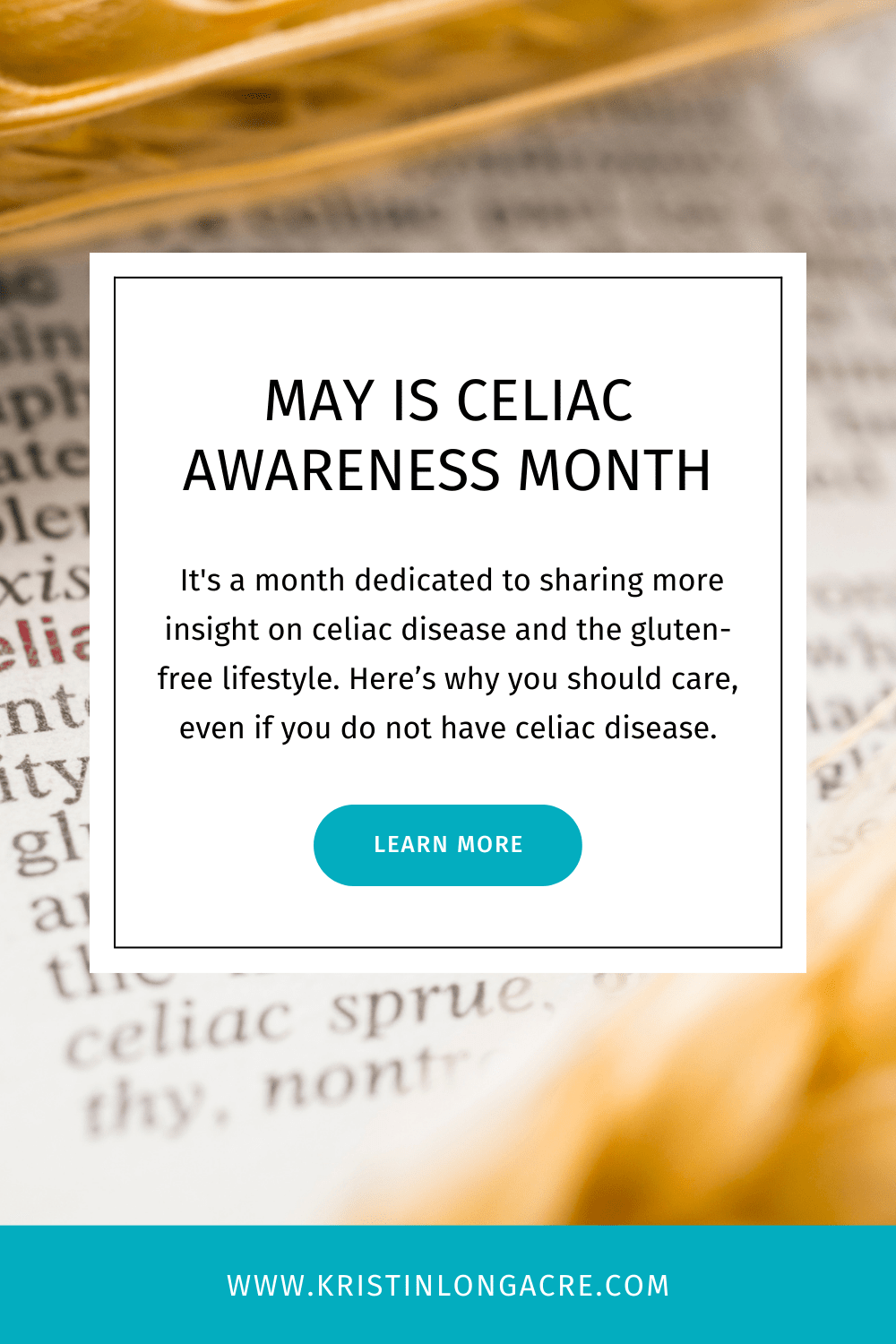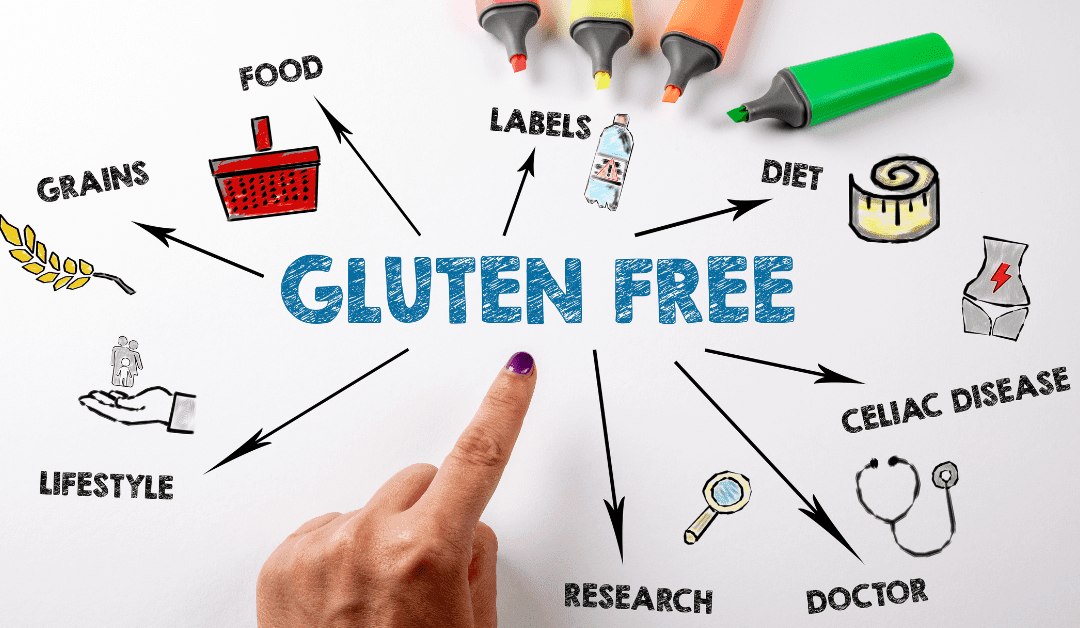Did you know that May is Celiac Awareness Month? It’s a month dedicated to sharing more insight on celiac disease and the gluten-free lifestyle. Depending on how you got to this blog, you might think, “Why should I care?” Hang around because we will talk about why this month matters more than you think.
Understanding Celiac Disease
Let’s start at the very beginning (a very good place to start). Celiac disease is not just a fad or a diet trend; it is an autoimmune disorder triggered by gluten, a protein found in wheat, barley, and rye. The short version is that when living with celiac disease, your body launches an all-out attack on itself whenever gluten enters your body.
Since celiac is an autoimmune disorder, it’s not something that necessarily pops up when you are born; generally speaking, it becomes triggered at some point during your life. Some people are diagnosed as kids. However, many are diagnosed as adults.
There are over 99 different symptoms of celiac disease, which makes it hard to pinpoint sometimes. Sometimes, a blood test can be used to diagnose celiac disease. However, to see a positive result, a certain amount of gluten must have been consumed over time. It’s not uncommon to run into a situation where you have been gluten-free long enough trying to manage symptoms that it would show a negative result.
According to Beyond Celiac, An estimated 1 in 133 Americans, or about 1% of the population, has celiac disease. However, recent screening studies point to a potentially higher prevalence than 1% in the United States… It is estimated that up to 83% of Americans who have celiac disease are undiagnosed or misdiagnosed with other conditions.
In other words, if you are concerned about some of your symptoms, it’s important to start asking questions with your doctor.
The Gluten-Free Lifestyle
A gluten-free lifestyle is essential for someone who has celiac disease. The littlest drop of gluten can launch their body into a spiral.
So, what does it mean to live gluten-free? It’s an adventure where you become a master at reading labels and scanning every ingredient list like it’s your job. Here’s a secret you will quickly find: Cleaning products, allergy medicine, and personal care products are sneaky places gluten likes to hide.
But it’s not the end of the world, I promise. As you get further into your gluten-free lifestyle, you will find delicious recipes, more energy, and your health improves. Sure, there might be days when you want a fresh gluten-filled baguette, but trust me, the gluten-free world has its own almost as delicious baguettes.
Why Celiac Awareness Matters
Making people aware of celiac disease is the first step towards change. The more people understand celiac and the gluten-free lifestyle; the easier it becomes for those of us living with it.
Regardless of whether you are gluten-free, it’s important to recognize that the gluten-free diet is not a fad, and it’s not going away, especially for those with celiac.
Unless a restaurant is a gluten-free restaurant, options on the menu may be limited or non-existent for someone with celiac disease or gluten sensitivity. Therefore, eating out and enjoying time with friends outside of the home can be hard.
Not to mention, grocery stores may not have many options either. Depending on the community they serve, there may only be ⅓ of an aisle of gluten-free foods. This includes snacks, bread, pasta, and sauces, making it hard for those who are gluten-free to get access to safe options.
Imagine a world where restaurants offer more than just a salad as the token gluten-free option, schools accommodate gluten-free kids without a fuss, and grocery stores stock a variety of safe, delicious gluten-free products.
That’s the world we strive for, one awareness-raising conversation at a time.
Tips for Supporting Celiac Awareness
You can get involved this month in many ways, even if you are not gluten-free.
For starters, ask your gluten-free friends to share more information with you. A support system is imperative for those who are diagnosed with celiac disease. Believe it or not, a few questions could go a long way for their mental health. I promise you will learn a few things along the way.
One of the easiest things you can do is share informative posts on social media. Plenty of gluten-free social media accounts have been working to raise awareness this month through informational posts. They share information on symptoms, how a diagnosis works, and how to support a friend or family.
Every little bit of awareness counts!
Overall, the more people understand celiac disease, the less backlash and misunderstanding the celiac community will encounter. Together, we can make a difference in the lives of those with celiac and create a more inclusive world for everyone.
Whether you’re living with celiac yourself or supporting a loved one on their journey, your efforts in raising awareness are truly appreciated. Here’s to a month filled with education, advocacy, and a gluten-free cupcake or three.
ABOUT ME

Hey There, I’m Kristin, a gluten-free nutrition coach helping gluten-free families adjust to their new lifestyle.


